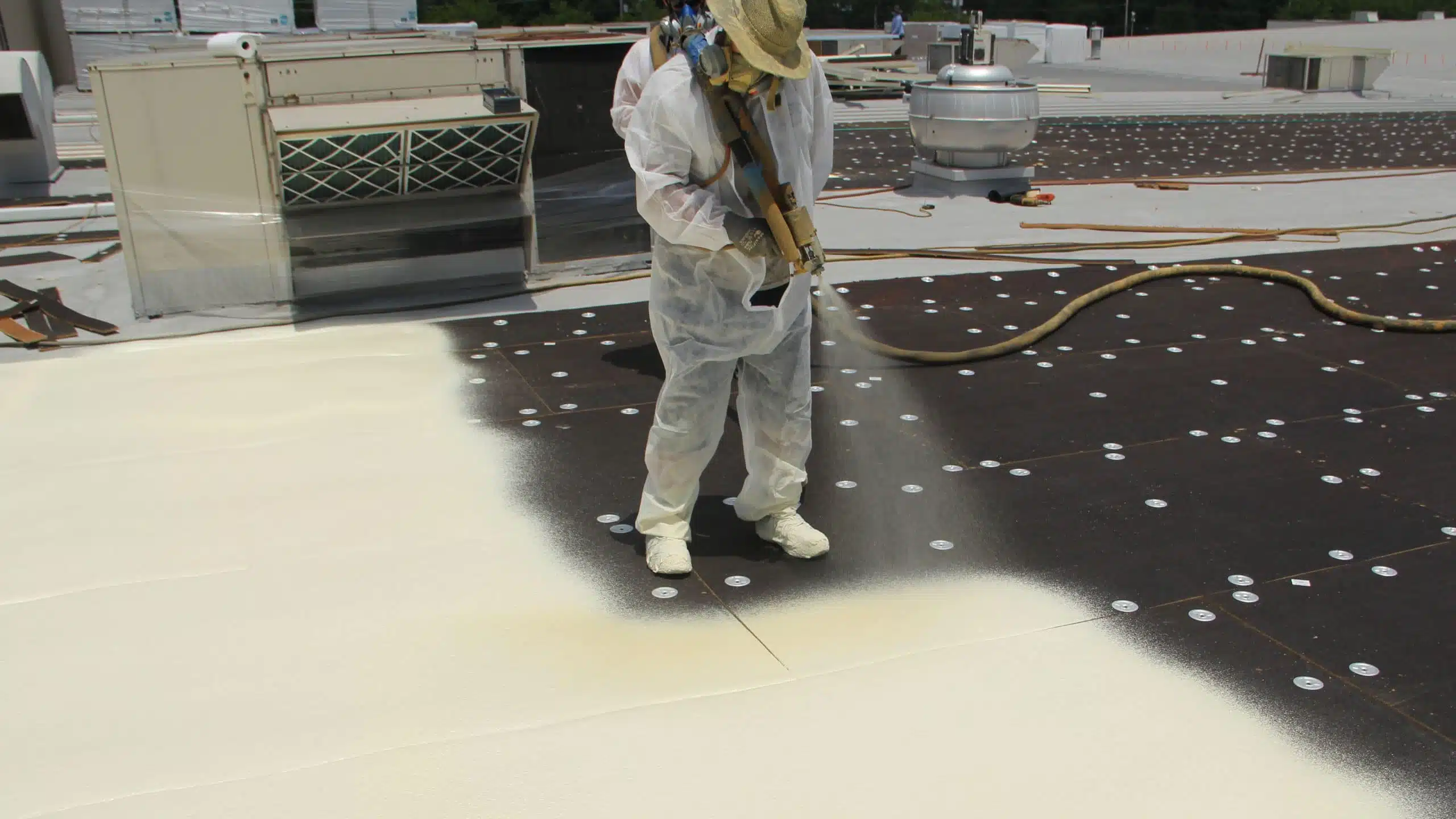
Spray foam insulation has gained significant traction in recent years, particularly in the commercial sector. For warehouses, which are often large, open spaces with unique insulation challenges, spray foam provides an ideal solution that ensures energy efficiency, structural integrity, and cost savings. In this comprehensive guide, we’ll explore why spray foam insulation stands out as the best choice for warehouses, addressing its numerous benefits, application processes, and how it can transform your insulation business.
What Makes Spray Foam Insulation Ideal for Warehouses?
Warehouses require specialized insulation solutions due to their size, design, and operational needs. Spray foam insulation meets these demands with its superior insulating properties, durability, and versatility. Here’s why spray foam insulation should be your go-to option for warehouses:
1. Superior Thermal Insulation
Warehouses often face challenges in maintaining consistent temperatures, especially in regions with extreme weather conditions. Spray foam insulation provides exceptional thermal resistance, which helps to stabilize indoor temperatures by minimizing heat transfer. This not only creates a more comfortable environment for workers but also protects temperature-sensitive goods.
- R-Value Superiority: Spray foam insulation boasts a high R-value, meaning it has excellent resistance to heat flow. This makes it more effective than traditional insulation materials like fiberglass or cellulose.
- Reduced Energy Costs: By significantly reducing heat loss in the winter and heat gain in the summer, spray foam insulation can lower energy bills by up to 50%. This reduction in energy consumption is particularly beneficial for warehouses, which often incur high heating and cooling costs.
2. Moisture and Air Barrier
Warehouses are prone to moisture issues, which can lead to mold, mildew, and structural damage. Spray foam insulation acts as a superior air and moisture barrier, providing a seamless application that seals gaps and cracks better than other insulation types.
- Prevention of Mold and Mildew: Because spray foam doesn’t absorb moisture, it reduces the risk of mold and mildew growth, creating a healthier environment inside the warehouse.
- Air Sealing: Spray foam insulation effectively seals off air leaks, which is crucial for maintaining optimal conditions in warehouses. This can also reduce HVAC load, enhancing system efficiency and lifespan.
3. Structural Strength and Durability
One of the unique benefits of spray foam insulation is its ability to add structural strength to buildings. This is particularly advantageous for warehouses, which may face the stresses of heavy equipment, goods storage, and harsh environmental conditions.
- Enhanced Structural Integrity: Closed-cell spray foam can increase the racking strength of walls by up to 300%, making warehouses more resilient against natural disasters like hurricanes or heavy snow loads.
- Longevity: Spray foam insulation does not settle or degrade over time, ensuring long-term performance and cost savings without the need for frequent replacements.
4. Versatility and Easy Application
Spray foam insulation can be applied to a wide range of surfaces and in various parts of a warehouse, including walls, roofs, and even under floors. This versatility makes it a highly adaptable solution for any warehouse layout.
- Quick Installation: Spray foam can be applied quickly and efficiently, minimizing downtime for warehouse operations. Its fast-curing properties allow businesses to resume their activities sooner compared to traditional insulation methods.
- Compatibility with Various Materials: Whether the warehouse is made of metal, concrete, or wood, spray foam adheres well, ensuring a strong bond that contributes to its effectiveness.
5. Sustainability and Environmental Impact
As businesses increasingly prioritize sustainability, spray foam insulation stands out for its eco-friendly properties. Choosing spray foam insulation for warehouses can contribute to green building certifications and demonstrate a commitment to environmental responsibility.
- Reduction in Energy Use: By enhancing the energy efficiency of warehouses, spray foam insulation contributes to a lower carbon footprint.
- Environmentally Friendly Products: Many spray foam products are now manufactured with environmentally friendly blowing agents and do not contain harmful chemicals, making them safe for both the environment and occupants.
How Spray Foam Insulation Works in Warehouse Applications

Understanding the application process and how spray foam insulation functions in a warehouse setting can help spray foam contractors effectively market and apply this solution.
1. Application Process
Spray foam insulation is applied using a specialized spray gun that mixes two liquid components (isocyanate and polyol resin) at the tip of the gun, creating a foam that expands and hardens on contact. The process involves:
- Preparation: The area is cleaned and prepped to ensure the foam adheres properly. Any existing insulation may need to be removed if it’s compromised.
- Spraying: The foam is sprayed directly onto the surface, expanding to fill gaps, cracks, and voids. This creates a continuous barrier that enhances the warehouse’s energy efficiency.
- Curing: Once applied, the foam cures quickly, forming a rigid, durable layer that adheres tightly to the surface.
2. Key Areas of Application in Warehouses
- Walls: Applying spray foam insulation to warehouse walls helps prevent heat transfer and provides an airtight seal against external weather conditions.
- Roofing Systems: Insulating the roof is crucial, as it’s often a major source of heat loss. Spray foam insulation not only insulates but also waterproofs, protecting the warehouse from leaks and water damage.
- Under Slab: Spray foam can also be applied under concrete slabs, providing insulation against cold ground temperatures and reducing the risk of moisture seeping up through the floor.
3. Handling Challenges in Warehouse Insulation
Spray foam insulation addresses common challenges faced in warehouse insulation:
- Temperature Fluctuations: Warehouses in climates with extreme temperatures benefit from spray foam’s superior insulating properties.
- High Ceilings and Open Spaces: The expansive nature of warehouses can make insulation challenging. Spray foam’s ability to expand and fill large areas makes it ideal for such spaces.
- Moisture Control: By acting as a vapor barrier, spray foam prevents moisture problems that can compromise the structure and contents of the warehouse.
Maximizing ROI with Spray Foam Insulation
Investing in spray foam insulation for warehouses is not just about enhancing comfort and energy efficiency; it’s also about maximizing return on investment (ROI). Here’s how:
1. Lower Operating Costs
The energy savings achieved through improved insulation directly translate to lower operating costs. Warehouses can see a significant reduction in their utility bills, improving the overall profitability of the business.
2. Increased Asset Value
Enhanced insulation can increase the value of the warehouse by making it more attractive to potential buyers or tenants. Spray foam insulation is a desirable feature that adds to the overall appeal of the property.
3. Reduced Maintenance and Repair Costs
The durability of spray foam insulation means fewer repairs and maintenance costs over time. It protects against common issues like mold, pest infestations, and moisture damage, which can be costly to address.
4. Enhanced Worker Productivity
A well-insulated warehouse provides a more comfortable environment for workers, which can lead to increased productivity and lower absenteeism due to improved working conditions.
Common Myths About Spray Foam Insulation Debunked
Despite its benefits, some misconceptions about spray foam insulation persist. Let’s clear up some common myths:
1. Myth: Spray Foam Insulation is Too Expensive
While the upfront cost of spray foam insulation can be higher than other materials, its long-term benefits, including energy savings and reduced maintenance costs, make it a cost-effective solution. The investment pays off quickly, especially in large, energy-intensive spaces like warehouses.
2. Myth: Spray Foam is Harmful to the Environment
Modern spray foam products are made with environmentally friendly components and do not emit harmful chemicals. Additionally, by reducing energy consumption, spray foam insulation contributes to lower carbon emissions.
3. Myth: Spray Foam Can’t Be Used in All Climates
Spray foam insulation is highly adaptable and can be used in any climate. Whether dealing with extreme cold or intense heat, spray foam provides the necessary thermal resistance to maintain a stable indoor environment.
Ready to Transform Your Warehouse with Spray Foam Insulation?
Spray foam insulation is not just a smart choice for warehouses; it’s the best choice. Its superior thermal performance, moisture resistance, structural benefits, and long-term cost savings make it an unmatched solution for warehouse insulation needs. If you’re a spray foam contractor looking to enhance your services and deliver top-notch insulation solutions to your clients, it’s time to take action.
Contact Spray Foam Genius Marketing today to discover how we can help you grow your business. Our comprehensive marketing services, including SEO, Google Business Profile Optimization, and lead generation, are specifically tailored for spray foam insulation contractors like you. Let’s work together to ensure your business stands out in the competitive insulation market.
Call us at 877-840-FOAM for USA and 844-741-FOAM for Canada visit our website at sprayfoamgeniusmarketing.com, or email us at [email protected] to get started.
Empower your business with the right marketing strategies and watch your client base grow.
- 5 Google My Business Hacks to Double Your Leads for Spray Foam Insulation Contractors - January 14, 2025
- Why Spray Foam Contractors Cannot Ignore Reputation Management in 2025 - January 13, 2025
- Local SEO Secrets Every Spray Foam Contractor Must Know to Win in 2025 - January 13, 2025

